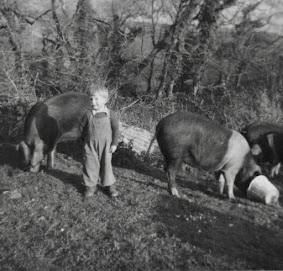The son of an Indian father and Vietnamese mother, Sobhraj spent his teenage years in France where he developed a taste for burglary, car theft, gambling and various criminal scams.
By the time he returned to Asia in 1970, the smooth-talking sociopath had developed a violent hatred of young, privileged, European travellers (or “long hairs”) whom he charmed, exploited, poisoned and, when he felt like it, slaughtered.
Flitting between Bangkok, Mumbai, Kabul, Calcutta and Kathmandu on passports stolen from his victims, Sobhraj embarked on killing spree that would claim the lives of at least 20 young people, including 14 during his stint at Thailand.
Sobhraj was eventually cornered by Indian police in July 1976 after a botched attempt to drug a group of French academics – an episode brilliantly re-told in The Serpent – and sent to jail.
By the time I arrived in New Delhi in late 1977, having travelled overland from London via Greece, Yugoslavia, Turkey, Afghanistan and Pakistan, Sobhraj was just beginning his long prison sentence at the city’s salubrious Tihar Jail.
Exhausted, friendless and with dwindling funds, I was exactly the type of Westerner that Sobhraj and his partner Marie-Andrée Leclerc targeted. Watching The Serpent unearthed memories that had lain undisturbed for over 40 years. That lost chapter of my life returned in vivid detail.
What has disturbed my sleep over the past few days is the not the thought that I could have fallen into the murderous clutches of Sobhraj and Leclerc, but the inescapable truth is that my entire Hippie Trail adventure had been shadowed by danger.
My trek from Istanbul to New Delhi was punctuated by small acts of violence and intimidation. Held at knifepoint by an irate bus driver in Turkey, harassed by on the streets of Tehran and fleeced of my valuables in Kabul I had no illusions about the dangers I faced on the road to enlightenment.
At the age of 21 I was already battle-hardened, having picked fruit in Queensland, lugged bricks in Perth and worked as a day labourer on the Auckland Docks to fund my travels. I reached Europe as a deckhand onboard a German tramp steamer.
By the time I boarded the ferry at Dover I had long discarded the garb of a 70s hippie. In the King’s Road I bought cavalry twill trousers, button down shirts and a tweedy jacket (all second-hand, of course). My flowing locks were shorn and my tatty backpack replaced by a compact, pig-skin suitcase.
Instead of Kerouac and the Beat Poets, my literary heroes were Evelyn Waugh, Rupert Brooke and Philip Larkin.
While there is much to admire in The Serpent, the series does reinforce many of the ridiculous stereotypes about life on the Hippie Trail – images that trivialise what was for many of us a pivotal and liberating experience in our young lives.
Drug addled hippies dancing to Jefferson Airplane might make amusing TV fodder, but I failed to spot any such gatherings as I travelled across the dry wastes of Afghanistan, marvelling at the sight of its nomadic Kochi people, the vibrant night markets and the imperious mountain ranges that touched the sky.
Clutching copies of the Bhagavad Gita, we were escaping the stuffy conformism of home in search a more cosmopolitan, tolerant and spiritual place. Some were searching for an Indian guru, others were simply addicted to life on the road with its instant camaraderie and hilarious unpredictability.
My travelling companions were earnest, peace-loving and almost entirely male – there were no bikini-clad girls in Kabul in 1977 – but not stupid. Before CNN and the Internet, the only way to really learn about the poor, war-ravaged and desperate parts of the globe was to get on a bus or train and go there.
The Hippie Trail was an astonishing, fleeting and imperfect social experiment. Its sights and smells, passing friendships, periods of despair and moments of innocent delight remain with me. Even a sordid killer like Charles Sobhraj, still rotting in jail, cannot poison those golden days my vanished youth.


